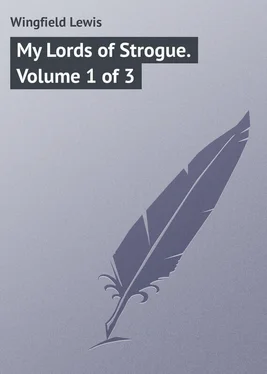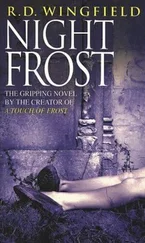Lewis Wingfield - My Lords of Strogue. Volume 1 of 3
Здесь есть возможность читать онлайн «Lewis Wingfield - My Lords of Strogue. Volume 1 of 3» — ознакомительный отрывок электронной книги совершенно бесплатно, а после прочтения отрывка купить полную версию. В некоторых случаях можно слушать аудио, скачать через торрент в формате fb2 и присутствует краткое содержание. Жанр: foreign_language, foreign_prose, на английском языке. Описание произведения, (предисловие) а так же отзывы посетителей доступны на портале библиотеки ЛибКат.
- Название:My Lords of Strogue. Volume 1 of 3
- Автор:
- Жанр:
- Год:неизвестен
- ISBN:нет данных
- Рейтинг книги:3 / 5. Голосов: 1
-
Избранное:Добавить в избранное
- Отзывы:
-
Ваша оценка:
- 60
- 1
- 2
- 3
- 4
- 5
My Lords of Strogue. Volume 1 of 3: краткое содержание, описание и аннотация
Предлагаем к чтению аннотацию, описание, краткое содержание или предисловие (зависит от того, что написал сам автор книги «My Lords of Strogue. Volume 1 of 3»). Если вы не нашли необходимую информацию о книге — напишите в комментариях, мы постараемся отыскать её.
My Lords of Strogue. Volume 1 of 3 — читать онлайн ознакомительный отрывок
Ниже представлен текст книги, разбитый по страницам. Система сохранения места последней прочитанной страницы, позволяет с удобством читать онлайн бесплатно книгу «My Lords of Strogue. Volume 1 of 3», без необходимости каждый раз заново искать на чём Вы остановились. Поставьте закладку, и сможете в любой момент перейти на страницу, на которой закончили чтение.
Интервал:
Закладка:
What is that? A crack of musketry; a feu de joie , which tells that the second procession has started; that my lord of Derry is on his way to the Rotunda. And what a grand Bashaw he is, this Earl of Bristol and Bishop of Derry, who, more Irish than the Irish, has thrown himself heart and soul into their cause! There is little doubt of his popularity, for yells rend the air as he goes by, and hats are tossed up, and men clamber on his carriage. It is as much as his outriders can do to force aside the throng. A magnificent Bashaw entirely, with a right royal following. A prince of the Church as well as a grandee; handsome and débonaire ; robed from top to toe in purple silk, with diamond buttons and gold fringe about the sleeves, and monster tassels depending from each wrist. A troop of light cavalry goes before, followed by a bodyguard of parsons-dashing young sparks in cauliflower wigs. Then some five or six coaches wheeze along. Then comes my lord himself in an open landau, bowing to left and right, kissing his finger-tips to the peeresses at Daly's; and after him more Volunteers on magnificent horses and a complete rookery of clergy. He turns the corner of the House of Lords, and in front of its portico in Westmoreland Street cries a halt, to gaze with satisfaction for a moment on the broad straight vista of what now is Sackville Street, which has opened suddenly before him. As far as eye may reach-away to the Rotunda-are two long lines of gallant horsemen in all the nodding bravery of plumes and pennons-a selected squadron of Volunteers which consists wholly of private gentlemen-the pride and flower of the National Army.
When the cavalcade stops there is a stir among the peeresses, for they cannot see round the corner, and are much disgusted by the fact. A clangour of trumpets wakes the echoes of the corridors. My lords have just finished prayers, and, marvelling at the strange flourish, run in a body to the entrance. The Volunteers present arms, the bishop bows his powdered head, while a smile of triumphant vanity curls the corner of his lip, and he gives the order to proceed. The lords stand shamefaced and uneasy while the people hoot at them, and the bishop's procession-with new shouts and acclamations-crawls slowly on its way.
One of the attendant carriages has detached itself from the line and comes to a stand at Daly's. Its suite divide the mob with blows from their long canes. Two running footmen in amber silk, two pages in hunting-caps and scarlet tunics, twelve mounted liverymen with coronets upon their backs. The coach-door is flung open, and a dissipated person, looking older than his years, emerges thence, and throwing largesse to the crowd, goes languidly upstairs to join the ladies.
It is my Lord Glandore of Strogue and Ennishowen, and the party up at the window to which he nods is his family. That tall refined lady of forty or thereabouts who acknowledges by a cold bow his lordship's careless salute is the Countess of Glandore (mark her well; for we shall see much of her). She has a high nose, thin lips, a querulous expression, and a quantity of built-up hair which shows tawny through its powder. She will remind you of Zucchero's portrait of Queen Bess. There is the same uncompromising mouth and pinched nostril, colourless face and haughty brow. You will wonder whether she is a bad woman or one who has suffered much; whether the wealth amid which she lives has hardened her, or whether troubles kept at bay by pride have darkened the daylight in her eyes. Stay! as your attention is turned to them you will be struck by their haggard weariness. If she is addressed suddenly their pupils dilate with a movement of fear. She sighs too at times-a tired sigh like Lady Macbeth's, as though a weight were laid on her too heavy for those aristocratic shoulders to endure. What is it that frets my lady's spirit? It cannot be my lord's unfaithfulness (though truly he's a sad rake), for this happy pair settled long since to pursue each a solitary road. Neither can it be the carking care of money troubles, such as afflict so many Irish nobles, for all the world knows that my Lord Glandore-the Pirate Earl, as he is called-is immensely wealthy, possessing a hoary old abbey which has dipped its feet in Dublin Bay for ages, and vast estates in Derry and Donegal, away in the far north.
Why the Pirate Earl? Because both his houses are on the sea; because his claret, which is of the best and poured forth like water, is brought in his own yacht from the Isle of Man, without troubling the excise; because the founder of the family-Sir Amorey Crosbie, who dislodged the Danes in 1177-was a pirate by calling; and because the Crosbies of Glandore have dutifully exhibited piratical proclivities ever since. Not that the present earl looks like a sea-faring evil-doer, with his sallow effeminate countenance and coquettish uniform. He is a high-bred, highly-polished, devil-may-care, reckless Irish peer, who, at a moment's notice, would pink his enemy in the street, or beat the watch, or bait a bull, or set a main of cocks a-spurring, or wrong a wench, or break his neck over a stone wall from sheer bravado-after the lively fashion of his order at the period. Before he came into the title he was known as fighting Crosbie. The tales told of his vagaries would set your humdrum modern hair on end-of how he pistolled his whipper-in because he lost a fox, and then set about preparing an islet of his on the Atlantic for a siege; of how he sent my Lord North a douceur of five thousand pounds as the price of pardon, and reappeared in Dublin as a hero; of how, when the earldom fell to him, he settled down by eloping with Miss Wolfe, or rather by carrying her off vi et armis , as was the amiable habit of young bloods. It was a singular Irish custom, since happily exploded, that of winning a bride by force, as the Sabine maidens were won. Yet it obtained in many parts of Ireland by general consent till the middle of the eighteenth century. Abduction clubs existed whose object was the counteracting of unjust freaks of fortune by tying up heiresses to penniless sparks. Some of the young ladies (notably the two celebrated Misses Kennedy) objected to the process, while most of them found in the prospect of it a pleasing excitement. Irish girls have always had a spice of the devil in them. It is not surprising that they should have looked kindly upon men who risked life and liberty for their sweet sakes.
Lord Glandore followed the prevailing fashion, carried off Miss Wolfe to his wild isle in Donegal, and society said it was well done. She was no heiress, but that too was well, for my lord was rich enough for both. The parson of Letterkenny was summoned to the islet to tie the knot (it was unmodish for persons of quality to be married in a church), and a year later the twain returned to the metropolis, with a baby heir and every prospect of future happiness. But somehow there was a gulf between them. Young, rich, worshipped, they were not happy. My lord went back to his old ways-drinking, hunting, fighting, wenching-my lady moped. Six years later another son was born to them, whose advent, strange to say, instead of being a blessing, was a curse, and divided the ill-assorted pair still further. Each shrined a son as special favourite, my lord taking to his bosom the younger, Terence-whilst my lady doted with a hungry love upon the elder, Shane. My lord, out of perversity maybe, swore that Shane was stupid and viciously inclined, unworthy to inherit the honours of Sir Amorey. My lady, spiteful perchance through heartache, devoured her darling with embraces, adored the ground he trod on, kissed in private the baby stockings he had outgrown, the toys he had thrown aside; and seemed to grudge the younger one the very meat which nourished him. This hint given, you can mark how the case stands as my lord enters the upper room at Daly's. Shane, a handsome, delicate youth, far up in his teens, retires nervously behind his mother, whilst Terence, a chubby child of twelve, runs forward with a shout to search his father's pocket for good things. What a pity, you think no doubt, for a family to whom fortune has been so generous to be divided in so singular a manner.
Читать дальшеИнтервал:
Закладка:
Похожие книги на «My Lords of Strogue. Volume 1 of 3»
Представляем Вашему вниманию похожие книги на «My Lords of Strogue. Volume 1 of 3» списком для выбора. Мы отобрали схожую по названию и смыслу литературу в надежде предоставить читателям больше вариантов отыскать новые, интересные, ещё непрочитанные произведения.
Обсуждение, отзывы о книге «My Lords of Strogue. Volume 1 of 3» и просто собственные мнения читателей. Оставьте ваши комментарии, напишите, что Вы думаете о произведении, его смысле или главных героях. Укажите что конкретно понравилось, а что нет, и почему Вы так считаете.












